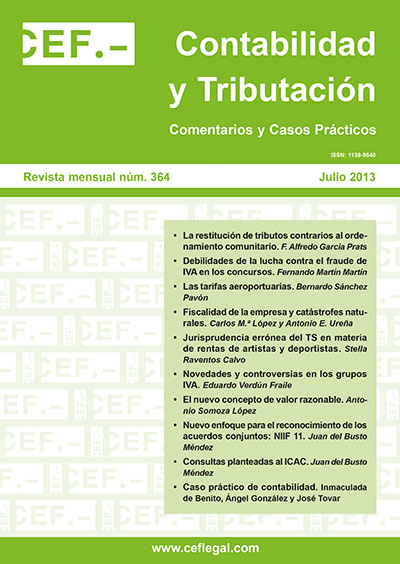Las distorsiones del IVA motivadas por la normativa concursal: medidas correctoras introducidas por la Ley 7/2012
DOI:
https://doi.org/10.51302/rcyt.2013.6413Palabras clave:
IVA, concurso, facturas rectificativas, acciones de reintegración, inversión del sujeto pasivoResumen
La independencia que se produce entre el ingreso de las cuotas de IVA devengadas y la devolución de cuotas deducibles y que se manifiesta entre distintos sujetos pasivos, o en distintos periodos de un mismo sujeto pasivo, conlleva el riesgo de tener que devolver cuotas que no han sido ingresadas, y constituye la base de la mayoría de los comportamientos fraudulentos en el IVA.
Estos comportamientos se ven favorecidos por la situación de concurso del sujeto pasivo por dos motivos:
a) El concurso limita el pago, en todo o en parte, del IVA repercutido por el concursado que va a ser deducido por el destinatario de la operación.
b) La prohibición de la compensación de oficio que establece la Ley Concursal consagra la independencia de cuotas de distinto signo en un mismo sujeto pasivo, atentando contra la naturaleza compensatoria del impuesto y amparando devoluciones que se desvinculan del no ingreso de cuotas correlacionadas.
La Ley 7/2012 ha tratado de resolver ambos problemas mediante un sistema casuístico de inversión del sujeto pasivo que llega tarde, así como de rectificación de autoliquidaciones complejo que no resuelve el problema de fondo: la prohibición de compensación de la Ley Concursal.















